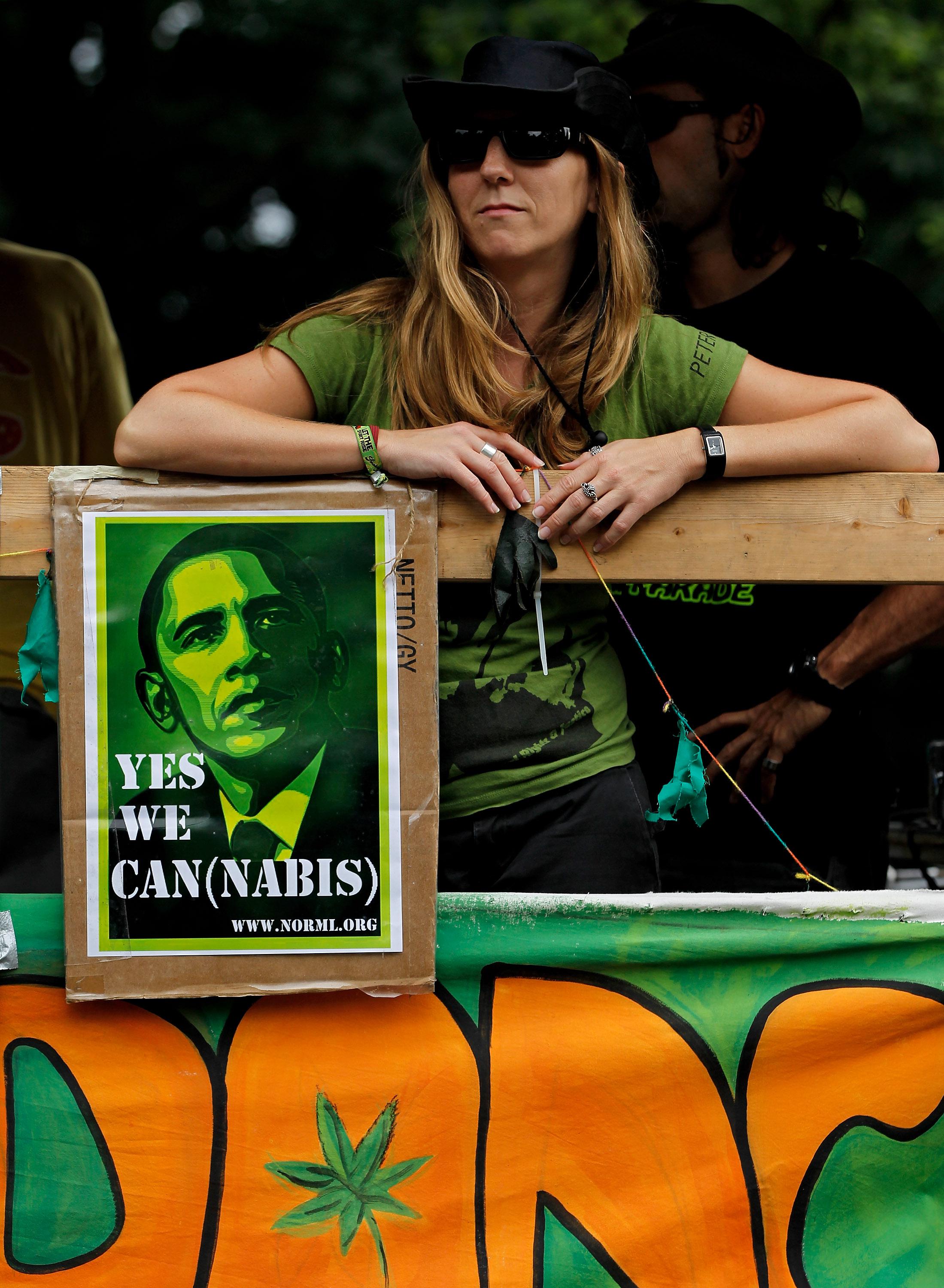Yesterday I criticized Sen. Marco Rubio, R-Fla., for stiff-arming a question about his marijuana use and claiming that he was doing so to protect children. I contrasted his maneuver with the Drug Enforcement Administration’s advice to parents (i.e., tell your kids the truth if they ask) and with the candid reply given two years ago by former Sen. Rick Santorum.
What about President Obama? How do his answers stack up?
Three months ago, David Remnick, the editor of the New Yorker, asked Obama about legalizing marijuana. Here’s what Obama said:
I smoked pot as a kid, and I view it as a bad habit and a vice, not very different from the cigarettes that I smoked as a young person up through a big chunk of my adult life. I don’t think it is more dangerous than alcohol.
When Remnick asked whether marijuana was less dangerous than alcohol, Obama said yes, “in terms of its impact on the individual consumer.” However, he added, “I’ve told my daughters I think it’s a bad idea, a waste of time, not very healthy.”
That’s basically a sound answer. Unlike Rubio or George W. Bush, Obama didn’t obfuscate. He showed, as Santorum did, that you can tell the truth and still explain why, in your view, today’s young people shouldn’t do what you did. Obama’s answer has the additional virtue of demonstrating that you don’t have to mindlessly defend the status quo to argue against smoking dope. He acknowledged, apparently on his own initiative, that our harsh treatment of marijuana, relative to tobacco and alcohol, makes little sense.
Extending this criticism, Obama argued that
we should not be locking up kids or individual users for long stretches of jail time when some of the folks who are writing those laws have probably done the same thing. … It’s important for society not to have a situation in which a large portion of people have at one time or another broken the law, and only a select few get punished.
In other words, no, hypocrisy isn’t OK. Everybody knows our enforcement of drug laws is a joke. To restore respect for the law as a whole, we have to reform these statutes and their administration. Politicians who insist on zero tolerance while shrugging that they smoked pot in graduate school, or refusing to say whether they did or didn’t, breed contempt for the law.
At the same time, Obama rejected legalization as the solution:
Those who argue that legalizing marijuana is a panacea, and it solves all these social problems, I think, are probably overstating the case. There is a lot of hair on that policy. And the experiment that’s going to be taking place in Colorado and Washington is going to be, I think, a challenge.
This isn’t a rejection of legalization. In fact, Obama said the legalization plans in those two states should “go forward.” What he rejected was the pretense that legalization would solve the problem. Legalization is just one step. You have to couple that move—the withdrawal of criminal penalties for individual possession—with the substitution of cultural discouragement, regulation, and restrictions on large-scale commercial exploitation.
I wish I could reduce Obama’s answer to a sound bite for you. I can’t. It’s too messy, with too many acknowledgments: Yes, I smoked weed; no, you shouldn’t. Yes, it’s no worse than alcohol; no, it’s still unhealthy. Yes, it should be legalized; no, not everywhere right away. Yes, we can decriminalize it; no, we can’t deregulate it.
To some people, this looks like confusion. To me, it’s wisdom. Sometimes you have to work with reality as you find it.
